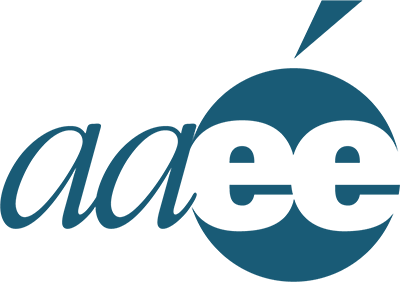SAMPLE HANDBOOK ARTICLE
Networking - Old Style and New
Jack Kronser, Human Resources Director, Douglas County School District (Colorado), and AAEE Past President
Among the many skills needed to be successful in the teaching profession is the skill to successfully navigate networks. Networking is defined in the Merriam-Webster Online Dictionary as: the exchange of information or services among individuals, groups, or institutions; specifically: the cultivation of productive relationships for employment or business.
Career opportunities in any profession are impacted by networks. Teaching is no exception. Long before official word gets out regarding vacancies and job opportunities, word of potential career opportunities are out in the networks, both formally and informally. For someone just starting out in teaching, it is important to be networked as well. How does someone who is just starting out in a career utilize networking as a successful tool for the job search process?
Field Experience
Most university teacher training programs require short field experiences, sometimes starting out early to explore a variety of school settings. In these field experiences, teacher candidates are likely to meet interesting teachers and school programs. It would be helpful to stay in touch with these teachers and begin developing a network to come back to for possible student teaching experiences. These interactions may build the very first educational networks that you establish. If you have a particular interest in urban teaching, for instance, make sure to include those settings in your field experiences.
Student Teaching
Student teaching provides a wealth of networking possibilities. You will have an opportunity to make many teacher contacts. You should get to know your cooperating teacher and his/her colleagues well. Do your best to impress them with your talents and your potential. Your cooperating teacher and his/her colleagues are typically the very first to hear about future vacancies. Stay in touch with these teachers and ask for their recommendations if positions become available in their schools.
Principal and Assistant Principal Contacts
Get to know your principal and assistant principal where you are student teaching. This connection can be your opportunity to demonstrate your qualifications over the entire length of your student teaching experience. Many student teachers are the first to be hired in buildings where they had their student teaching experience. If there are no vacancies in a school, many principals will recommend their highly regarded student teachers to other principals in the district. You may also be considered for long term substitute teaching assignments once your student teaching is done. For those who finish mid-year, this experience is an excellent way to secure a position for the next school year.
Professional Organizations
Many professional organizations have student memberships. Joining an organization as a student member exposes teacher candidates to individuals that are active in their profession. These connections often can be productive in identifying potential vacancies and in making contacts. Active participation in an organization identifies you as a person who is engaged in the teaching profession and as someone who is already professionally involved.
Seminars/Job Fair Attendance
Attendance at seminars, career panels, mock interviews and similar venues will provide you with practical information that will help you in the job search process. The same goes for teacher job fairs. Teacher job fairs continue to be the very best places to personalize the job search process. It keeps the “high touch” in an increasingly “high tech” world. Many new hires first made connection with a school district at an education job fair.
Social Networks
Social networks now play a significant role in communications and career searches. Take advantage of internet social networking websites and teaching resources such as LinkedIn. More than 200 million members subscribe to LinkedIn. According to Fortune Magazine, many company recruiters increasingly use online sources for finding candidates. Their message is “You’d better be on the web.” These websites provide great ways for prospective candidates to market themselves by posting resume information, teaching experience and provide opportunities to dialogue with other professionals in the industry.
Your Facebook page can be a great social and professional networking tool! Consider making your Facebook page a career marketing tool. Use professional information in your “Profile” including photos. Connect with professional organizations under your “Likes and Interests.” Include a resume in your “Profile.” Be aware that as you are interviewing and even after you are hired, you will be the subject of social network searches. Be cognizant about what photos and postings might say about you as a professional educator.
Networking is an important tool for professionals in the job search process. Develop and use your networking skills and take advantage of every networking opportunity to help you find the teaching job that is waiting for you.






